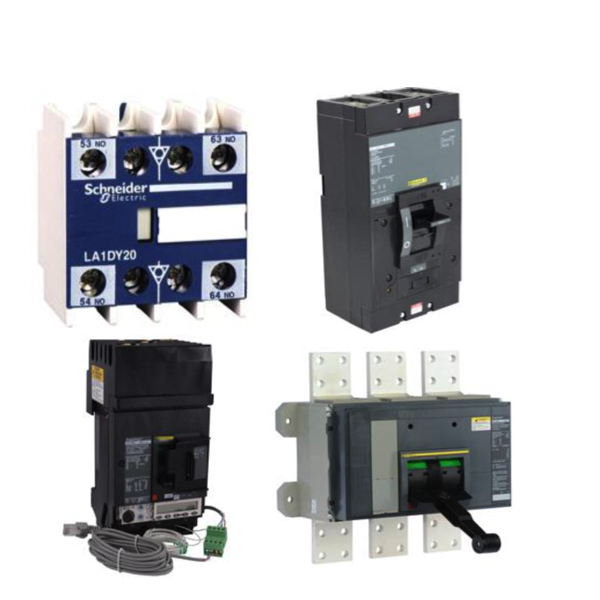Molded Case Circuit Breakers

Molded case circuit breakers (MCCBs) provide dependable overcurrent and short-circuit protection for electrical systems across residential, commercial, and industrial applications. Designed to safely interrupt electrical flow during fault conditions or excessive current, MCCBs help protect conductors, equipment, and connected loads while supporting overall system reliability and compliance.
Constructed with a durable molded housing, MCCBs are built to withstand mechanical stress and demanding operating environments. They are available in a wide range of frame sizes, current ratings, and interrupting capacities, making them suitable for everything from branch circuit protection to high-capacity industrial power distribution. This versatility allows MCCBs to be used in panels, switchboards, and control systems with varying performance requirements.
MCCBs commonly utilize either thermal-magnetic mechanisms or electronic trip units to provide precise protection. Thermal-magnetic breakers combine overload and short-circuit protection using proven mechanical components, while electronic trip MCCBs offer enhanced accuracy, adjustability, and diagnostic capabilities for more complex systems. Together, these options allow engineers and electricians to select protection tailored to specific application demands.
FAQs
Q: What is a molded case circuit breaker (MCCB)?
A molded case circuit breaker is a protective device designed to interrupt electrical current during overloads or short circuits, helping prevent equipment damage and electrical hazards.
Q: Where are MCCBs commonly used?
MCCBs are used in residential, commercial, and industrial electrical systems, including distribution panels, motor control centers, and high-capacity branch circuits.
Q: What is the difference between thermal-magnetic and electronic trip MCCBs?
Thermal-magnetic MCCBs use a bimetal strip for overload protection and an electromagnet for short-circuit protection. Electronic trip MCCBs use sensors and electronic controls to provide more precise and adjustable protection settings.
Q: What is a magnetic circuit breaker?
Magnetic circuit breakers respond to short circuits or sudden current spikes by using an electromagnet that trips the breaker when current exceeds its rated limit.
Q: What is thermal protection in a circuit breaker?
Thermal protection guards against sustained overcurrent by using a bimetal strip that bends when heated, causing the breaker contacts to open and interrupt power.
Why Buy Molded Case Circuit Breakers from RSP Supply
RSP Supply offers a comprehensive selection of molded case circuit breakers designed to meet the needs of residential, commercial, and industrial electrical systems. Our MCCBs are sourced from trusted manufacturers and available in a wide range of ratings, trip technologies, and configurations. Customers rely on RSP Supply for dependable electrical protection solutions, knowledgeable support, and components built to perform reliably in demanding applications.

